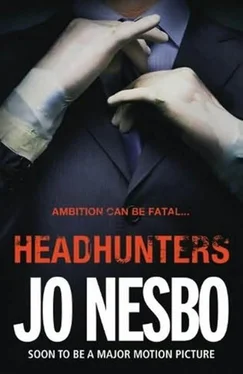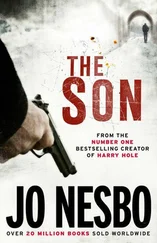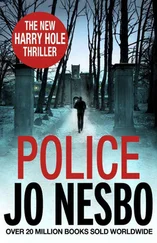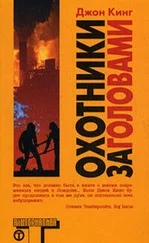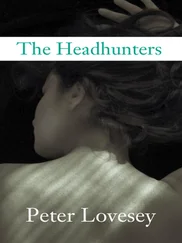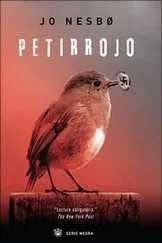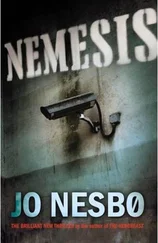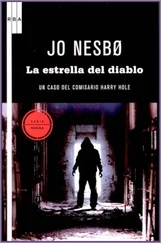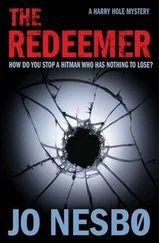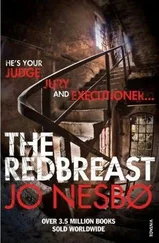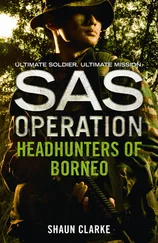‘You switched some pieces,’ he hissed. ‘My son does not cheat.’
I could taste blood in my mouth. The white queen lay on the floor in front of me. The crown was chipped. Hatred burned like bile through my throat and chest. I picked up the damaged queen and put it back on the board. Then the other pieces. One by one. Replaced them exactly as they had been.
‘Your move, Dad.’
For that is what the player with the most cold-blooded hatred does when he has been on the point of winning and his opponent has unexpectedly hit him in the face, struck somewhere it hurts, found his terror. He doesn’t lose his overview of the board but puts his terror aside and keeps to his plan. Breathes in, reconstructs, continues the game, walks away with the victory. Leaves the scene without any triumphant gestures.
I sat at the end of the table and saw Clas Greve’s mouth moving. Saw his cheeks tensing and relaxing and forming words that were obviously comprehensible to Ferdinand and the two Pathfinder representatives, at any rate they were clearly satisfied, all three of them. How I hated that mouth. Hated the grey-pink gums, the solid tombstone teeth, yes, even the shape of that revolting orifice; a straight cleft between two upward-pointing corners suggesting a smile, the same incised smile with which Bjørn Borg had charmed the world. And with which Clas Greve was now seducing his future employer, Pathfinder. But most of all I hated his lips. The lips that had touched my wife’s lips, my wife’s skin, probably her pale red nipples and for certain her dripping wet, open vagina. I imagined I could see a blonde pubic hair in a crease in the fleshy part of his lower lip.
I had sat silently for almost half an hour while Ferdinand with imbecilic commitment had reeled off idiotic questions from the interview guide as though they were his own.
At the beginning of the interview Greve had exclusively addressed himself to me. But increasingly he realised that I was only there as an unannounced, passive monitor and that his job today was to enlighten the other three with the gospel according to Greve. He had, however, at regular intervals sent me quick questioning looks as though searching for a hint as to my role.
After a while the two representatives from Pathfinder, the company chairman and the public relations manager, had asked their questions, which naturally enough had centred around Greve’s time with HOTE. And Greve had given an account of how he and HOTE had taken a leading role in the development of TRACE, a lacquer containing around a hundred transmitters per millilitre which could be applied to any object. Its advantage was that the varnish was almost invisible and just like normal varnish it adhered so firmly to the object that it was impossible to get rid of it without using a paint scraper. The disadvantage was that the transmitters were so small that their signals were too weak not to penetrate any matter denser than air that might cover the transmitters, such as water, ice, mud or the extremely thick layers of dust to which vehicles in desert wars might be subject.
On the other hand, walls, even made of thick bricks, were seldom a problem.
‘Our experience was that soldiers painted with TRACE lost contact with our receivers when the dirt on them reached a certain point,’ Greve said. ‘We don’t yet have the technology to make microscopic transmitters more powerful.’
‘We do at Pathfinder,’ the chairman said. He was a sparse-haired man in his fifties who kept twisting his neck at various junctures as though afraid it would stiffen, or else he had swallowed something big that he couldn’t quite get down. I suspected it was an involuntary spasm caused by a muscular disease for which there was only one outcome. ‘But unfortunately we don’t have the TRACE technology.’
‘Technologically speaking, HOTE and Pathfinder would have made the perfect married couple,’ Greve said.
‘Just so,’ the chairman said pointedly. ‘With Pathfinder as the housewife, receiving a few miserable titbits from the monthly pay packet.’
Greve chuckled. ‘Quite right. Besides, HOTE’s technology would be easier for Pathfinder to acquire than the other way round. That’s why I believe there is only one viable route for Pathfinder. And that is to undertake the journey on its own.’
I saw the Pathfinder representatives exchange glances.
‘Anyway, you have an impressive CV, Greve,’ the chairman said. ‘But what we set great store by at Pathfinder is that our CEO should be a stayer… what do you call it in your recruitment-speak?’
‘A farmer,’ Ferdinand sprang to the rescue.
‘A farmer, yes. A good image. In other words, someone who cultivates what is already there, who builds things up, brick by brick. Who is tough and patient. And you have a record which is erm…, spectacular and dramatic, but it doesn’t tell us if you have the stamina and doggedness that is necessary for the director we are seeking.’
Clas Greve had listened to the chairman with a serious expression and now he was nodding.
‘First of all, I would like to say that I share your view of the type of director Pathfinder should be looking for. Secondly, I wouldn’t have shown any interest in this challenge if I had not been that type.’
‘You are that type?’ the second representative from Pathfinder asked carefully, a diplomatic type I had already pigeonholed as a public relations boss before he introduced himself. I had nominated a number of them.
Clas Greve smiled. A hearty smile that not only softened the flinty face, but changed it totally. I had seen this trick of his a few times now, which was intended to show the boyish rascal he could also be. It had the same effect as the physical contact that Inbau, Reid and Buckley recommended, the intimate touch, the vote of confidence, the one that says I am laying myself bare here.
‘Let me tell you a story,’ Greve said, still smiling. ‘It’s about a matter I find hard to admit. Namely, that I am a dreadful loser. I’m the sort of person who finds it difficult to lose at heads or tails.’
Chuckles round the room.
‘But I hope it will tell you something about my stamina and staying power,’ he continued. ‘In the BBE I was once chasing a, sad to say, pretty insignificant drug smuggler in Suriname…’
I could see the two Pathfinder men unconsciously leaning forward a tad. Ferdinand took care of the coffee refills while sending me a confident smile.
And Clas Greve’s mouth moved. Crept forward. Devoured greedily where it had no right to be. Had she screamed? Of course she had. Diana simply couldn’t hold back, such easy meat for his lusts. The first time we had made love I had been reminded of the Bernini sculpture in the Cornaro Chapel: The Ecstasy of S. Teresa di Avila . Partly because of Diana’s half-open mouth, the suffering, almost pain-filled facial expression, the tensed vein and the concentrated furrow in her forehead. And partly because Diana screamed, and I have always thought that Bernini’s Carmelite saint is screaming as the angel pulls the arrow from her chest, ready to thrust it in again. That is what it looks like to me at any rate, in-out-in, an image of divine penetration, fucking at its most sublime, but fucking nevertheless. But not even a saint could scream like Diana. Diana’s scream was a pained enjoyment, an arrow-point in the eardrum that sent shivers throughout your body. It was a lament and an enduring moan, a tone that merely rose and fell, like a model aeroplane. So piercing that after the first act of love I had woken up with a ringing in my ears, and after three weeks of lovemaking I thought I could detect the first symptoms of tinnitus; a continual torrent of water falling, or at least a brook, accompanied by a whistling sound that came and went.
Читать дальше
